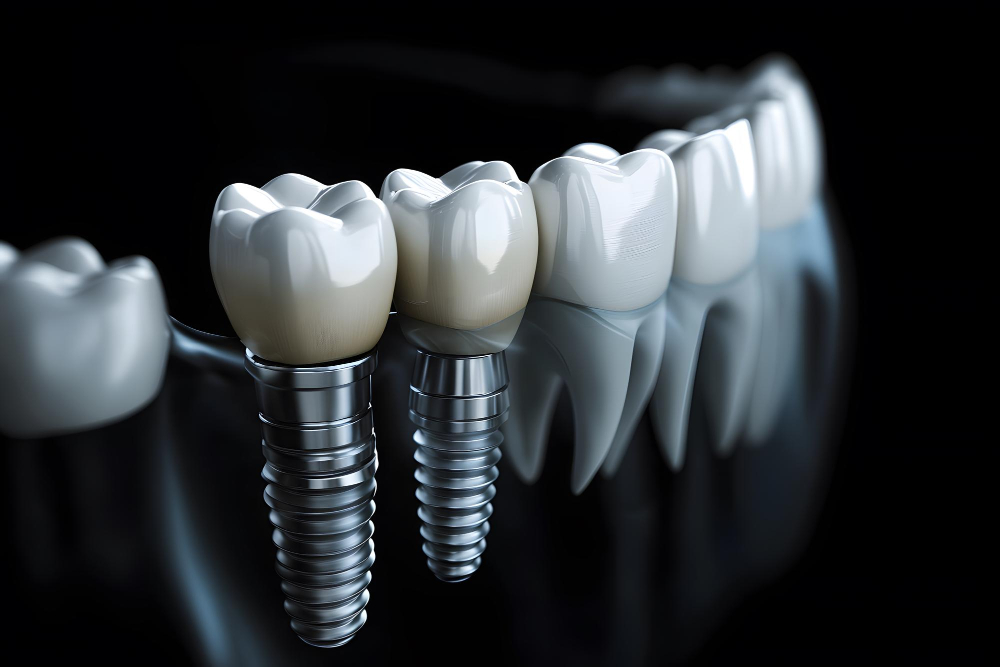When it comes to maintaining optimal oral hygiene, brushing alone is not enough. Flossing plays a crucial role in removing plaque and food particles from areas that your toothbrush cannot reach—especially between the teeth and along the gumline. But with different flossing methods available, you may wonder which one is better: traditional flossing or water flossing?
At Roots Dental Care, located in Hasbiguda and Jubilee Hills, we emphasize the importance of flossing and help our patients choose the most effective method for their oral health needs. Let’s explore the differences between traditional and water flossers to help you make an informed decision.
1. Why Is Flossing Important?
Flossing is a critical part of oral hygiene that helps:
✔ Remove plaque and food particles between teeth, reducing the risk of cavities.
✔ Prevent gum disease by removing bacteria that can cause inflammation.
✔ Improve breath freshness by eliminating trapped food debris.
✔ Enhance overall oral health, contributing to a healthier smile.
Despite its importance, many people skip flossing because they find it time-consuming or difficult. Understanding the different flossing methods can help make the process easier and more effective.
2. Traditional Flossing: The Classic Method
What Is Traditional Floss?
Traditional floss is a thin string, usually made of nylon or Teflon, that is inserted between the teeth to manually remove plaque and food debris. It is available in waxed, unwaxed, flavored, and even tape-like variations.
Pros of Traditional Flossing
✅ Effective Plaque Removal: When used correctly, traditional floss is highly effective at removing plaque between teeth.
✅ Affordable and Portable: It is inexpensive and easy to carry anywhere.
✅ Precise Cleaning: Allows targeted cleaning between tight spaces.
Cons of Traditional Flossing
❌ Difficult for Some Users: People with braces, arthritis, or dexterity issues may struggle with handling string floss.
❌ Can Cause Gum Bleeding: Aggressive flossing may irritate gums and cause minor bleeding.
❌ Requires Proper Technique: Many people do not floss correctly, reducing its effectiveness.
3. Water Flossers: A Modern Alternative
What Is a Water Flosser?
A water flosser (or oral irrigator) is a device that uses a pulsating stream of water to remove food particles and plaque between teeth and along the gumline. It is often recommended for people who find traditional flossing difficult.
Pros of Water Flossing
✅ Gentle on Gums: Ideal for people with sensitive gums, braces, or dental implants.
✅ Easier to Use: Requires minimal effort and is more accessible for those with dexterity issues.
✅ Effective for Deep Cleaning: Reaches areas that traditional floss might miss, including below the gumline.
Cons of Water Flossing
❌ More Expensive: Water flossers are pricier than traditional floss and require electricity or batteries.
❌ Less Portable: Not as easy to carry around as a small container of floss.
❌ May Require Time to Adapt: Some users find it messy at first and need time to get used to the technique.
4. Which One Is Better?
Both traditional floss and water flossers are effective in promoting oral health, but the best choice depends on individual needs.
- For people with braces, implants, or gum sensitivity, a water flosser is often the better option.
- For those looking for a cost-effective and precise cleaning method, traditional floss is a great choice.
- For optimal oral hygiene, combining both methods may provide the best results.
At Roots Dental Care in Hasbiguda and Jubilee Hills, our dentists can help you determine which flossing method is best suited for your dental needs.
5. Tips for Effective Flossing
Regardless of the method you choose, follow these best practices for optimal results:
✔ Floss Daily: Floss at least once a day, preferably before bedtime.
✔ Use Proper Technique: When using traditional floss, gently slide it between teeth and curve it around each tooth in a C-shape.
✔ Be Gentle: Avoid snapping floss against gums to prevent irritation.
✔ Consider a Water Flosser for Hard-to-Reach Areas: If you struggle with traditional flossing, a water flosser can be a great alternative.
Conclusion
Flossing is an essential part of maintaining good oral hygiene and preventing dental problems. Whether you prefer traditional floss or a water flosser, the key is to use a method that you will stick with consistently.
At Roots Dental Care, located in Hasbiguda and Jubilee Hills, we encourage our patients to prioritize flossing as part of their daily routine. If you need personalized advice or a demonstration on proper flossing techniques, our expert dentists are here to help!


